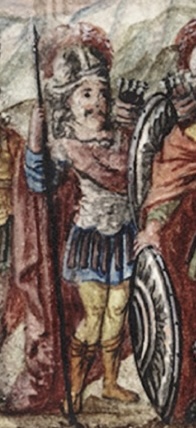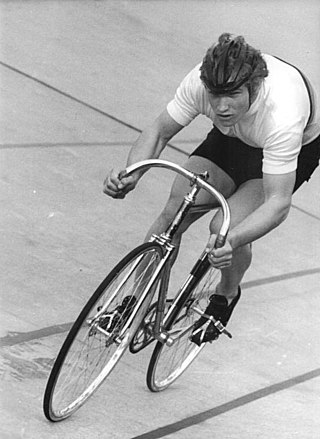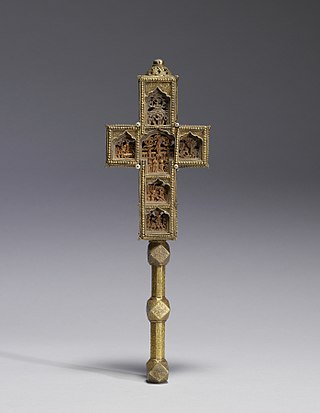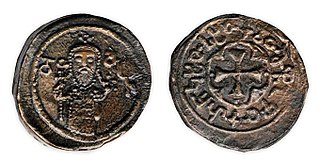
The Harmony Society was a Christian theosophy and pietist society founded in Iptingen, Germany, in 1785. Due to religious persecution by the Lutheran Church and the government in Württemberg, the group moved to the United States, where representatives initially purchased land in Butler County, Pennsylvania. On February 15, 1805, the group of approximately 400 followers formally organized the Harmony Society, placing all their goods in common.

Anthony Deane Rapp is an American actor and singer who originated the role of Mark Cohen in the Broadway production of Rent. Following his original performance of the role in 1996, he reprised it in the film version of the show and the show's United States tour in 2009. He also performed Charlie Brown in the 1999 Broadway revival of You're a Good Man, Charlie Brown and originated the role of Lucas in the musical If/Then in 2014. From 2017 to 2024, he played Commander Paul Stamets on the television series Star Trek: Discovery.

C. W. & George L. Rapp, commonly known as Rapp & Rapp, was an American architectural firm famed for the design of movie palaces and other theatres. Active from 1906 to 1965 and based in Chicago, the office designed over 400 theatres, including the Chicago Theatre (1921), Bismarck Hotel and Theatre (1926) and Oriental Theater (1926) in Chicago, the Five Flags Center (1910) in Dubuque, Iowa and the Paramount Theatres in New York City (1926) and Aurora, Illinois (1931).

John George Rapp was the founder of the religious sect called the Harmony Society and a number of associated communes.

Kartlos is the legendary progenitor and "father of all Georgians" in the Georgian mythology, more specifically of the nation of Kartli, known as the Kingdom of Iberia in the classical antiquity. Kartlos is a legendary figure originating in Georgian Judeo-Christian mythology, recounted in the medieval Georgian Chronicles. He was a descendant of Japheth, second son of Targamos, the common ancestor of the Caucasians, and Kartlos, himself becoming the patriarch of the Georgians. According to the myth, he controlled a large territory in the Caucasus and participated, with his brothers, in a war to free himself from the domination of a giant and Titan king Nebrot.

Vernon Fred Rapp was an American Major League Baseball manager and coach. A career minor league catcher and a successful skipper in the minors, Rapp had two brief tours of duty as a big league manager.
Adam Rapp is an American novelist, playwright, screenwriter, musician and film director. His play Red Light Winter was a Pulitzer Prize finalist in 2006.

Old Economy Village is an historic settlement that is located in Ambridge, Beaver County, Pennsylvania, United States. Administered by the Pennsylvania Historical and Museum Commission, it lies on the banks of the Ohio River and is surrounded by downtown Ambridge.

Susan von der Lippe was an American competition swimmer for Stanford University, a 1984 Olympic gold and silver medalist, and a United States Masters world record-holder in multiple events.

The men's track time trial at the 1976 Summer Olympics in Montreal, Canada, was held on July 20, 1976. There were 30 participants from 30 nations, with each nation limited to one cyclist. One additional cyclist, Elmabruk Kehel from Libya, was entered but did not start because of the last-minute boycott from the African countries. The event was won by Klaus-Jürgen Grünke of East Germany, the nation's first victory in the men's track time trial. Michel Vaarten of Belgium took silver. Niels Fredborg became the only man to win three medals in the event, adding a bronze to his 1968 silver and 1972 gold.

The Swedish Olympic Committee (SOC; is the Swedish National Olympic Committee. The Swedish Olympic Committee organize the Swedish participation in the Olympics, choose the participants and run a support program for swedish elite athletes called "Topp och Talang".
Anita Rapp-Ødegaard is a former Norwegian footballer and Olympic champion.
Victor Max Rapp was an American and Canadian football coach who served as the head coach of the BC Lions from 1977 to 1982.

The Swedish Handball Federation is the national handball association in Sweden.

Clemens Andreas Rapp is a German swimmer. He competed at the 2012 Summer Olympics in the 200 m freestyle, finishing in 24th place in the heats, failing to qualify for the semifinals. His team was placed fourth in the 4 × 200 m freestyle relay.

Marcel Rapp is a German former professional footballer who played as a centre-back or as a midfielder and who is the head coach of Bundesliga club Holstein Kiel.

The Christianization of Iberia refers to the spread of Christianity in the early 4th century as a result of the preaching of Saint Nino in the ancient Georgian kingdom of Kartli, known as Iberia in classical antiquity. The then-pagan king of Iberia Mirian III declared Christianity to be the kingdom's state religion. According to Roman historian Sozomen, this led the king's "large and warlike barbarian nation to confess Christ and renounce the religion of their fathers", as the polytheistic Georgians had long-established anthropomorphic idols, known as the "Gods of Kartli". The king would become the main sponsor, architect, initiator and an organizing power of all building processes.

Taylor Michael Rapp is an American professional football safety for the Buffalo Bills of the National Football League (NFL). He played college football at Washington, and was selected by the Los Angeles Rams in the second round of the 2019 NFL draft.

The style of the Georgian sovereign refers to the formal mode of address to a Georgian monarch (mepe) that evolved and changed many times since the establishment of the ancient Kingdom of Iberia, its transformation to the unified Kingdom of Georgia and its successive monarchies after the disintegration of the realm.

The unification of the Georgian realm was the 10th-century political movement that resulted in the consolidation of various Georgian crowns into a single realm with centralized government in 1008, the Kingdom of Georgia, or Sakartvelo. It was originally initiated by the powerful local aristocracy of the eristavs, due to centuries-long power struggles and aggressive wars of succession between the Georgian monarchs, arising from their independent ruling traditions of classical antiquity and their Hellenistic-era monarchical establishments in Colchis and Iberia.















